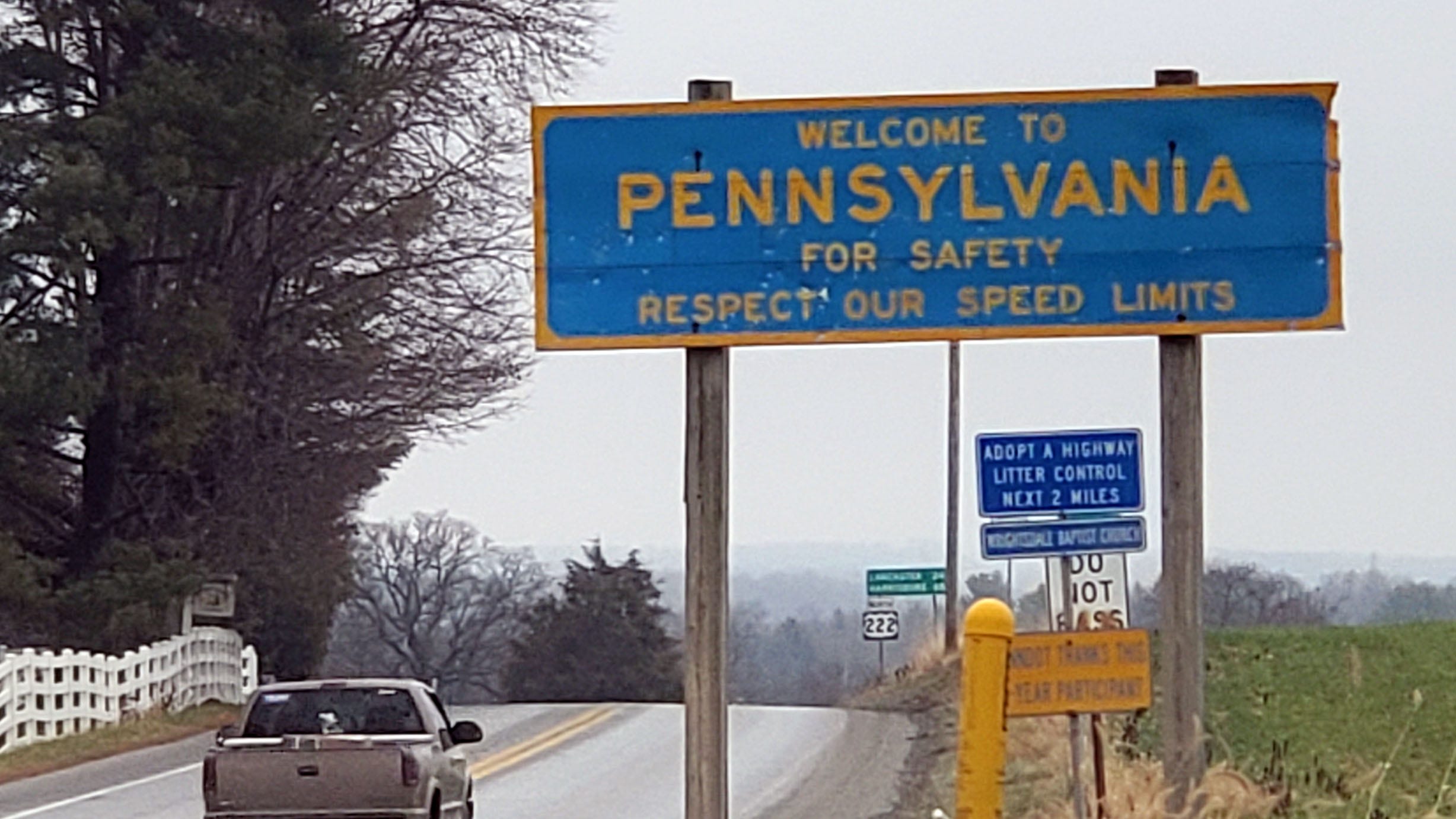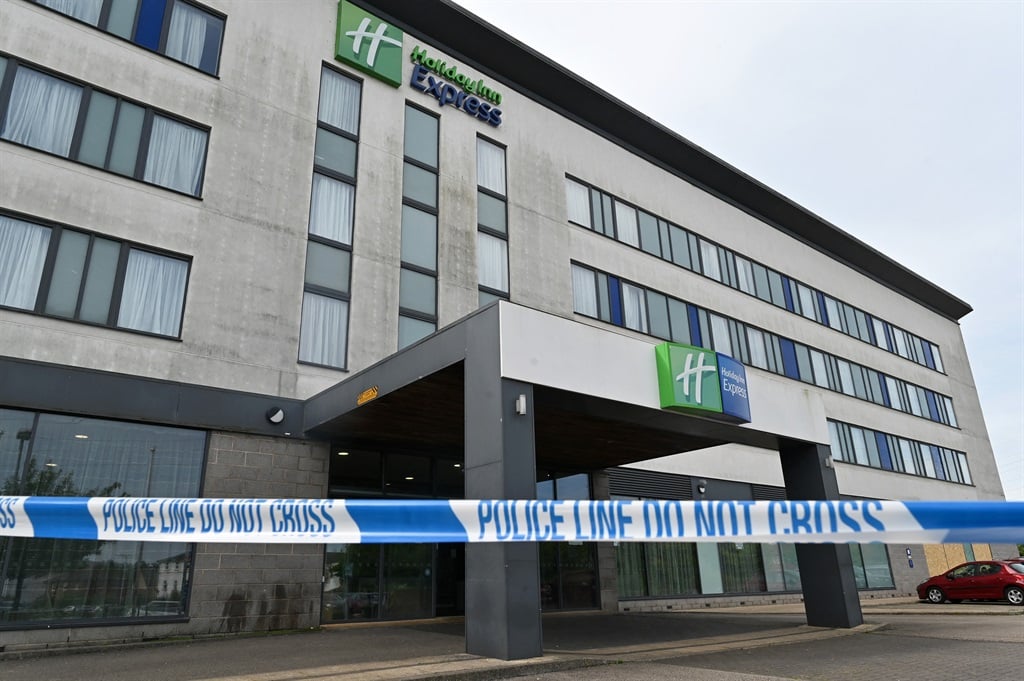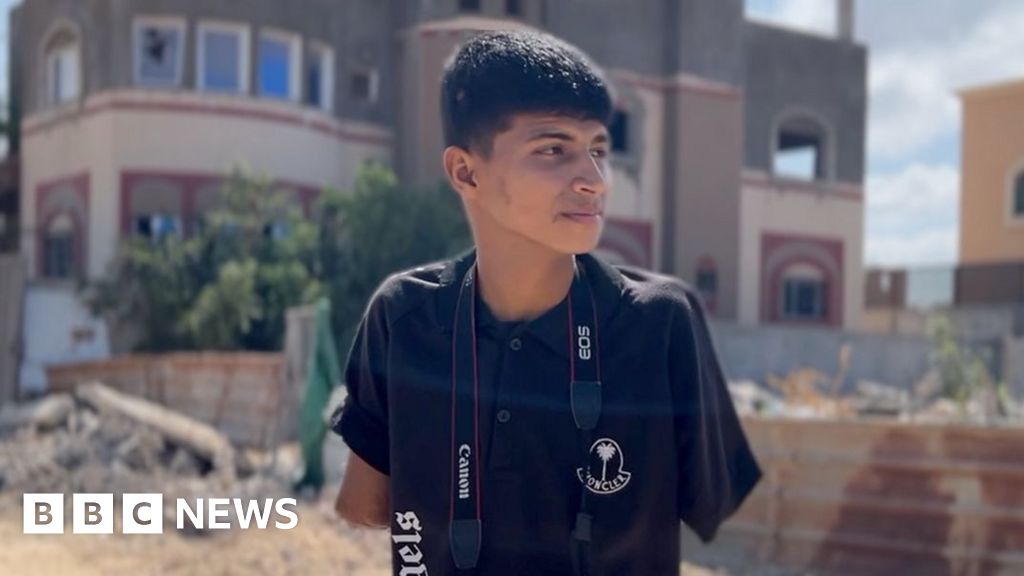Police tape pictured at a Holiday Inn Express hotel in Manvers on the outskirts of Rotherham, northern England, on 13 August 2024. The scars of violence are still visible outside a hotel, believed at the time to be housing asylum seekers, in Rotherham, ten days after hundreds of men, some draped in the English flag, gathered outside chanting “kick them out” while overwhelmed police came under fire from bricks and burning objects. (Justin Tallis/AFP)
- The recent riots in Rotherham have heightened concerns
about immigration. - Residents expressed fear and anger over the violence and
the perceived impact of immigration on their community. - The riots, which were the worst in the UK since 2011, led
to significant damage and arrests, with some rioters receiving heavy sentences.
Ten days after the riots, the scars of violence are still
visible outside the hotel housing asylum seekers in Rotherham, northern
England, where many residents remain shellshocked and still worried about
immigration.
“It was terrifying,” Clive Wingate, who lives near
the now-infamous Holiday Inn Express, told AFP.
The 66-year-old pensioner asked:
When they were lighting the bins to push into the building, where there were people inside, what were their intentions?
The images from Rotherham were among the most striking of
the recent riots across England and Northern Ireland.
Hundreds of men, some draped in the English flag, gathered
outside the hotel, chanting “kick them out” while outnumbered police
came under fire from bricks and burning objects.
The nationwide riots – the worst in the country since 2011 –
began after a knife attack that killed three girls during a dance class on 29
July in Southport, another northern town.
False rumours that the suspect was a Muslim asylum seeker
spread on social media, and although police corrected the record,
anti-immigration riots erupted for more than a week, leading to more than 1 000
arrests.
At the Holiday Day Inn in Rotherham, an economically
deprived town in South Yorkshire, a police cordon still marked it as a
“crime scene” this week.
Signs of fire damage and plywood covering doors and windows
remained as indicators of the violence.
‘Very angry’
The leafy area several kilometres from the town centre is
usually peaceful, residents said, adding that the asylum seekers housed there
while their applications are processed were not a major problem.
The rioters “deserve jail, they are morons”, said
Charlotte Bedford, who was out walking her dog.
The 34-year-old added:
If you want to protest, protest peacefully.
Several rioters received heavy sentences. They included
three years in prison for a 19-year-old who threw bricks at police officers and
two years and eight months for a 60-year-old man who pulled an officer to the
ground.
Phil Fletcher, a 65-year-old who worked in property
maintenance, criticised the violence, but was not surprised by the riots.
“There are millions of people fed up with immigration.
It’s not our country anymore,” said the pensioner, who voted for the
anti-immigration Reform UK party in the general election in early July, won by
Labour.
Not far from him, a woman added: “18 000 arrived since
the beginning of the year”, referring to the number of migrants arriving
on small boats in southeast England after crossing the Channel.
“That’s too many. Immigration has to be the priority
for this government,” she added.
According to its supporters, Brexit was supposed to allow
the UK to take back control of its borders.
But legal and irregular immigration, including via the small
boats, have since reached record levels.
Natalie Jackson, a 28-year-old teaching assistant, told AFP
that the UK is “a small island.”
She said:
We are overpopulated. We can’t even get a doctor’s appointment anymore.
Caroline Roberts, a 66-year-old seamstress, added:
“Nobody is listening to people that are complaining.”
“If you say anything, you are called a racist.
“It’s making people very angry. The help they
(migrants) get, our own children can’t get it. We are short of money
here,” she added.
‘Frustrations’
Rotherham, which has a population of 265 000, grew during
the Industrial Revolution but suffered decades of economic decline as the local
steelworks and mines closed.
The town also experienced a notorious child sexual
exploitation scandal between 1997 and 2013 which is still reverberating today.
Gangs of men with Pakistani heritage abused around 1 400
girls, mostly white and from disadvantaged backgrounds, whom they raped and
sexually exploited, according to watchdog reports into the scandal.
The official report severely criticised authorities for a
failure to address the abuse, attributing it to issues around race, class and
religion and a fear that the perpetrators’ ethnicity would trigger allegations
of racism.
READ | UK far-right leader incites riots ‘from the safety of a sun lounger’ in Cyprus
This has only increased the distrust of immigration and
institutions in the town.
“There was always going to be more anger here,”
explained Riaz Ayaaz, referring to the legacy of the abuse scandal.
The 29-year-old Muslim, born in Rotherham, said that his
mosque had asked worshippers to “look out for each other”, to not
“react” to possible provocations and to “trust the police”.
For him, a “lot of people” used the deaths of the
three girls in Southport “as an excuse to vent out their
frustrations”.
He called for a focus on “wider scale issues”,
particularly the economy, “which impacts everything else.”




















Discussion about this post